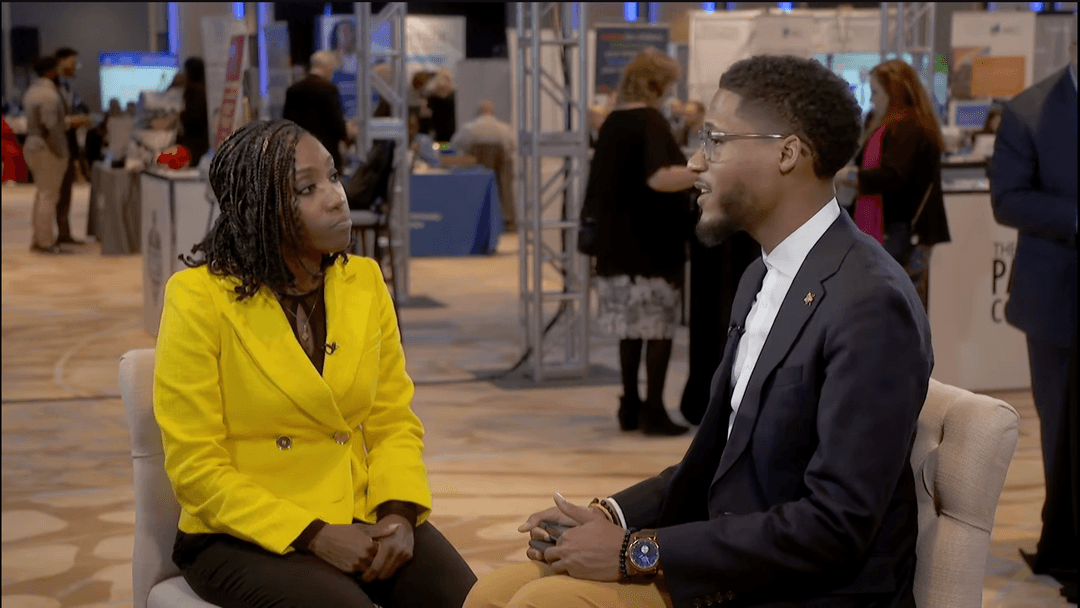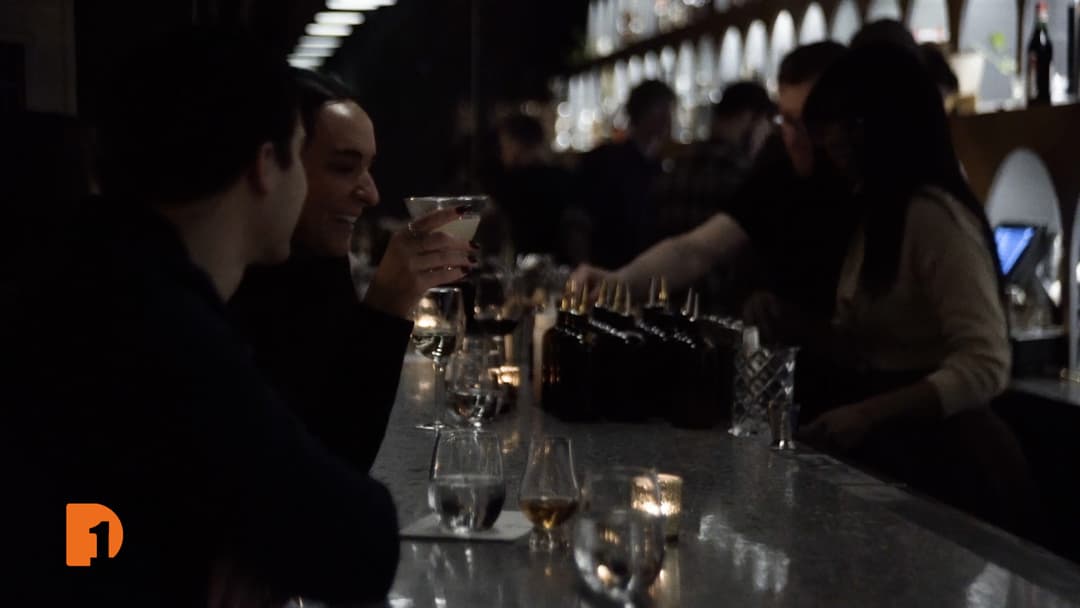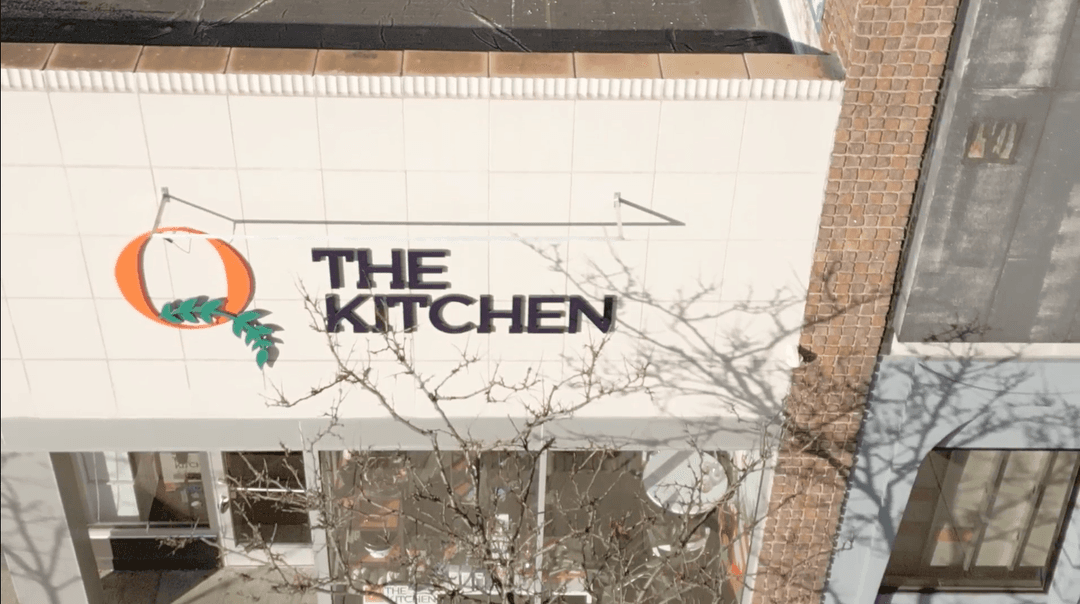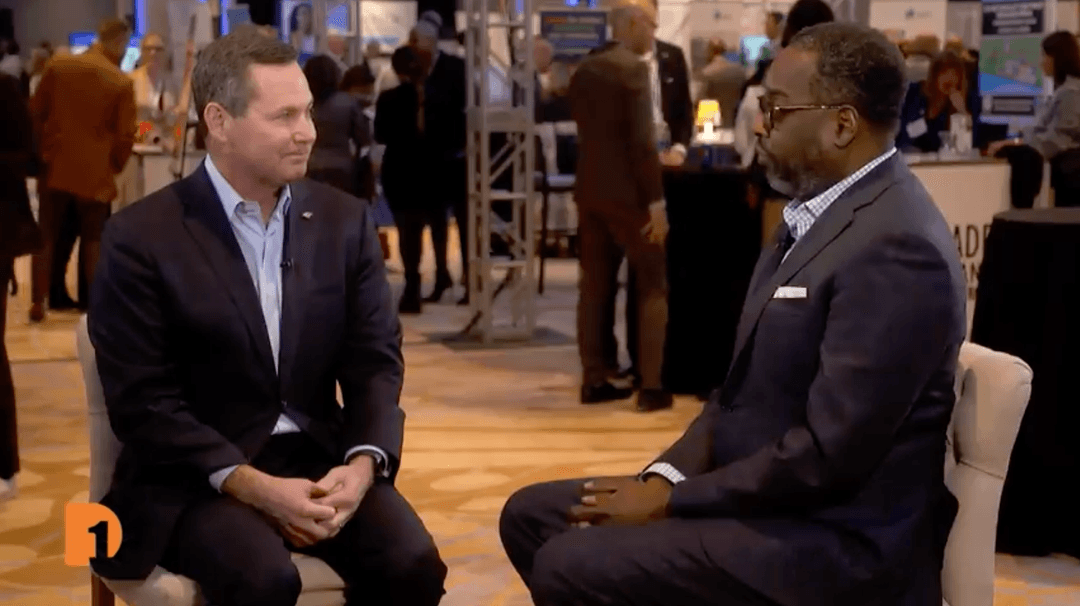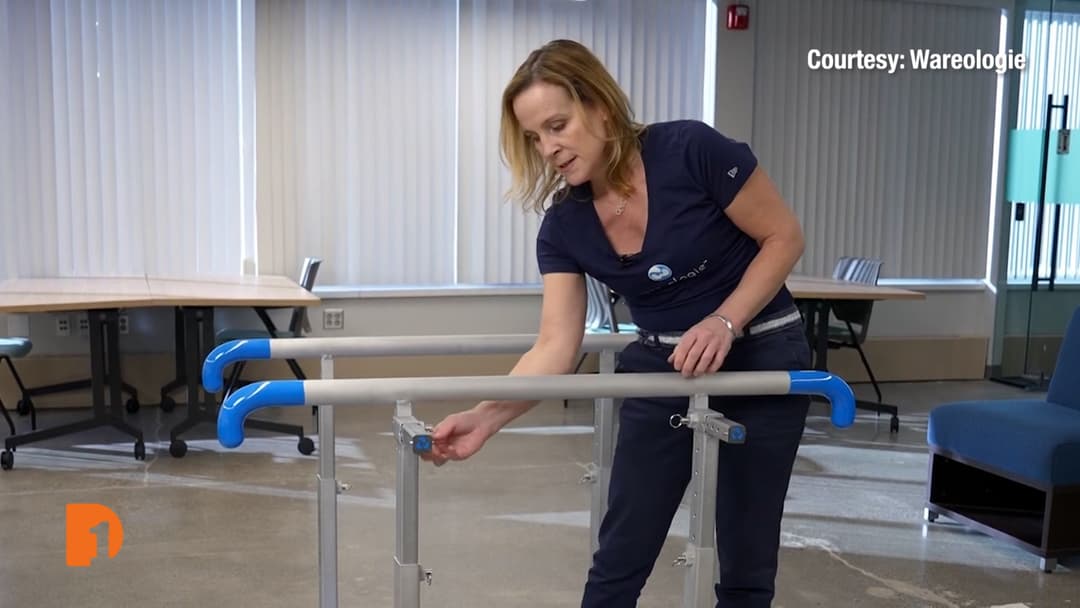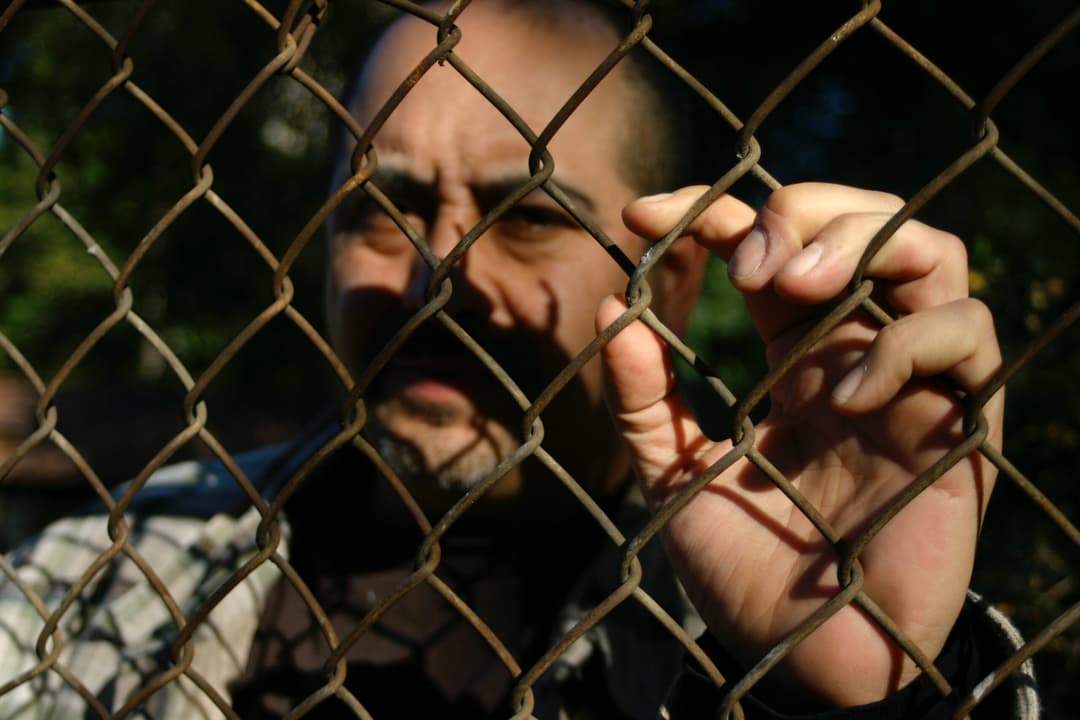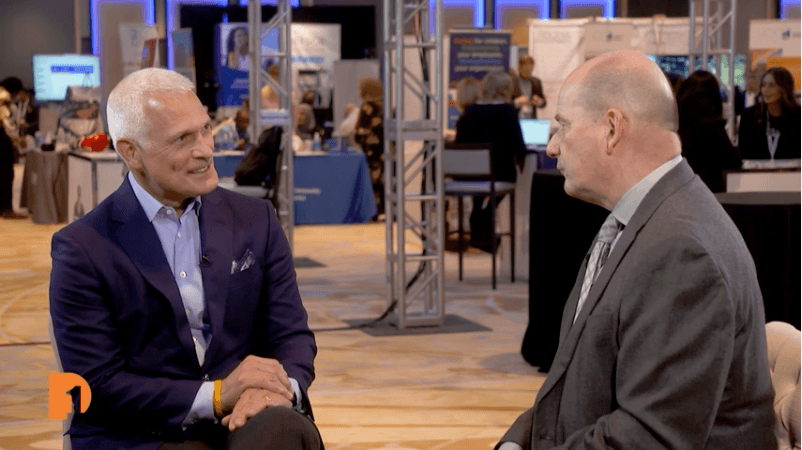Worker-owned Pingree Detroit creates equity, shares success with employees
Mar 2, 2023
Pingree Detroit, a design and manufacturing cooperative near the city’s Fitzgerald neighborhood, is making the city a better place one recycled good at a time, and they’re doing it all while giving employees stock in the business. The worker-owned business takes recycled materials — leather, seatbelts and airbags for example — and turns them into consumer products like shoes, backpacks, purses, wallets, dog leases and more.
And if you’d hadn’t heard of them already, there’s a chance you might see them around the city this year. Pingree Detroit Co-Founder Jarret Schlaff says the company wants to host pop-ups frequently at Eastern Market and at events like the Detroit Auto Show.

Future of Work host and One Detroit producer Will Glover met with Schlaff at Pingree Detroit’s manufacturing space to talk about the company’s worker-owned business model and how it’s creating new opportunities for residents and veterans to learn valuable skills and share in the company’s success. They also talk about the challenges of being an entrepreneur and the benefits of building a company in Detroit.
Full Transcript:
Will Glover, Host, One Detroit: So let’s just jump right in. The first thing I would love for you to do is introduce us, our viewers to Pingree, Detroit. So what is Pingree Detroit? What do you guys do? What do you sell? Where do you work? Give me the rundown hanger.
Jarret Schlaff, Co-founder and CEO, Pingree Detroit: Pingree Detroit. We are an eight-year-old worker-owned design and manufacturing cooperative. Yeah. To celebrate our eighth birthday on January 15th, actually, which is exciting. Thank you. And so we take materials. So everything from leather to seatbelts, airbags, otherwise destined for the landfill. We keep those out of landfill from the big three and we turn those in everything from the first shoes made in Detroit in the 50s to backpacks, purses, wallets, dog leashes, coasters, and everything in between.
Will Glover: How is Pingree doing? Are we getting ready to expand? Are we downsizing? Is it business as usual? Where are we headed? What’s the conditions?
Jarret Schlaff: So our look would be inspired with a chance of smiles. So we’re pretty excited. We’re in a really good spot. So we’re growing our team. We’re now about to be joining our 13th member of our team and we’re worker-owned. So that means that $0.77 of every dollar in profit goes right back to the workers on our team. And as we’re growing, we’re now doing more pop-ups. Our goal is 250 in-person activations throughout the year of 2023, which means Eastern Market on weekends. We’re going to be at the Autorama this month, the auto show again.
Doing everything from live shoemaking to selling our goods right here in person so folks can touch, feel, smell that new car. We like to say it smells a new car because nearly was. And so we’re excited to do that. And that really that growth allows to connect, inspire folks, have them be a part of our story and a part of our mission.
Will Glover: So one of the things you just mentioned is that you’re a worker-owned company. So for anyone who isn’t familiar with what that actually means, what is a worker owned company and what made you decide to go that route with Pingree?
Jarret Schlaff: So worker ownership, some folks are familiar with the term cooperative co-op, right? There’s energy co-ops, there’s food co-ops, there’s RTI where you can go buy your camping supplies. A lot of credit unions. That is a co-op, right? We have multiple stakeholders where as a worker-owned co-op, we chose to be this type of model because we want to maximize equity and maximize well-being, not just maximizing profit. So we want to be really intentional around designing structures so that when we do well, our team does well, our neighborhoods do well and the environment does well.
Will Glover: So in this model, how has it been when it comes to attracting talent, retaining talent? Because that’s if we’re talking about the future of work and where things are going pretty much across every industry, the narrative is we need more talent, we need more people and we need them to stay. So how has your business model helped you maintain that talent that you need?
Jarret Schlaff: By being able to incentivize and offer folks to co-own the company, not just get another job, but like to work to be a part of a meaningful culture, to actually create and benefit from all the small ways that you might make that company better. To not just, you know, maybe you get a bonus and some other companies or sometimes there’s a stock split, it’s great.
You know, we just heard about folks in unions get a nice little bump from certain auto companies. Great. But what if it wasn’t just a small check? It was regardless of the size of the company, you’re sharing 77% of profits. Your innovation is celebrated and that could be an additional bump at the end of the year.
So we really wanted to offer and say, if you’re going to join our team, maybe you might make a little less per hour than you would if you’re going to go work in New York or in L.A., But you can be a part of something great. You can be a part of not just making a good wage, but actually making neighborhoods stronger, being a part of a solution-driven environment.
Will Glover: So what is one thing that could be better about doing business in southeast Michigan?
Jarret Schlaff: One of the challenges of doing business in Michigan, in Detroit, is there’s sometimes not the critical mass of people in certain areas. To where we did a pop-up, you know, downtown right now, for instance, we might need to have a thousand conversations over a course of a week to do really well. Well, we might only get a couple of hundred.
How many folks are actually going to come into our store? So, like for us being in front of enough people with enough consistency for us to be able to accomplish our goal to stay open as a business is really important. And we have consistently had a hard time of just getting in front of enough folks. We have to get really creative and everything from online advertising to more unique activations. So for us, one of the hardest things is just been getting enough support from enough folks consistently.
Will Glover: What is a good thing about doing business here in southeast Michigan?
Jarret Schlaff: Yeah, so we often say relationships are our strongest currency and I think that Detroit, one of Detroit’s strongest currencies is the relationships, the people. There’s this energy, there’s this vibe around cooperation more so than competition. Yes, we’re competing to be our best and bring forth the best thing and sometimes we might have the same product that we’re offering. But like this equipment behind us was donated to us by Shinola.
Like their team mentored us when we first were getting started. We’ve collaborated with hundreds, hundreds of individuals from the get-go. I call myself a co-founder. I’m the only technical founder, but I would not have started this without hundreds and thousands literally, of conversations of folks offering to take me to coffee and mentor me and sharing this resource and donating this piece of equipment.
We’ve found so much energy around cooperation and it’s allowed us to not only just keep moving forward and sustain, but actually grow. And now we’re doing the same thing. Our scraps were donated. There’s over 30 different small entrepreneurs that are getting our scraps and turning them into earrings and other products and majority women of color, majority native Detroiters. So we’re really focusing on how can we kind of, as we’re getting pulled from someone in front of us, how can we also pull from behind and really embrace those relationships.
Stay Connected:
Subscribe to One Detroit’s YouTube Channel & Don’t miss One Detroit Mondays and Thursdays at 7:30 p.m. on Detroit PBS, WTVS-Channel 56.
Catch the daily conversations on our website, Facebook, Twitter @DPTVOneDetroit, and Instagram @One.Detroit
View Past Episodes >
Watch One Detroit every Monday and Thursday at 7:30 p.m. ET on Detroit Public TV on Detroit Public TV, WTVS-Channel 56.
Stay Connected
Subscribe to One Detroit’s YouTube Channel and don’t miss One Detroit on Thursdays at 7:30 p.m. and Sundays at 9 a.m. on Detroit PBS, WTVS-Channel 56.
Catch the daily conversations on our website, Facebook, Twitter @OneDetroit_PBS, and Instagram @One.Detroit
Related Posts
Leave a Reply
Your email address will not be published. Required fields are marked*
